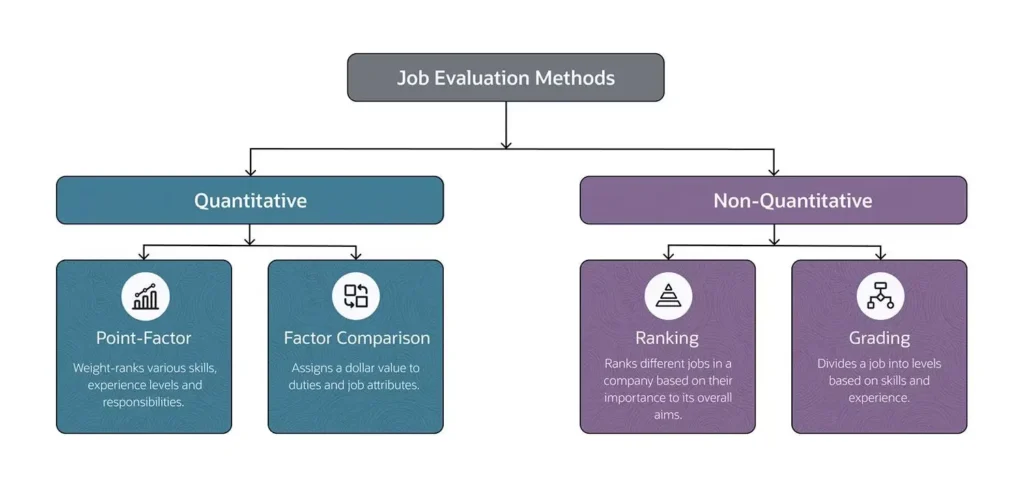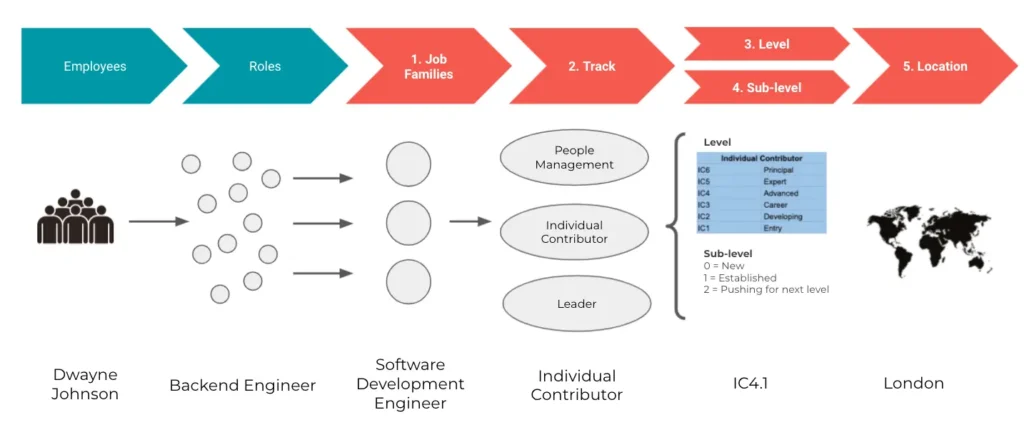In an era where technology is reshaping the dynamics of the workplace, salary benchmarking tools has become a critical for organizations striving to attract and retain top talent.
As we delve into the digital age, this process is undergoing significant transformations, influenced by emerging technologies, evolving job roles, and changing workforce expectations.
Let’s explore current salary trends using salary benchmarking tools and offer predictions for its future trajectory.
What Are Salary Benchmarking Tools?
Salary benchmarking tools are digital platforms that enable organizations to compare their employees’ compensation packages against industry standards, competitors, and market trends. These tools provide data-driven insights into salaries, benefits, and incentives, helping businesses establish competitive pay structures that attract and retain top talent.
Why Salary Benchmarking Matters
Salary benchmarking matters because it ensures that companies offer fair and competitive compensation, essential for attracting and retaining skilled employees. It helps businesses align their pay structures with market standards, reducing employee turnover, enhancing job satisfaction, and supporting long-term business growth through better talent management.
The Evolution of Salary Benchmarking Tools

Traditionally, salary benchmarking tools has been used for processing and comparing compensation packages within an industry or among competitors to determine competitive salary ranges. In the digital age, this practice has evolved beyond mere comparison. It now incorporates a wide array of data points, including employee skills, experience levels, and even market demand for specific roles.
Integration of Big Data and AI
One of the most significant trends in salary benchmarking tools is the integration of Big Data and artificial intelligence (AI). These technologies enable organizations to analyze vast amounts of compensation data from various sources. AI algorithms can predict future salary trends and help companies adjust their compensation strategies proactively.
Emphasis on Total Rewards
Organizations are increasingly focusing on ‘total rewards’ rather than just salaries. This approach takes into account other aspects of compensation, such as bonuses, health benefits, work-life balance, and career development opportunities. Today’s employees value these comprehensive packages, and salary benchmarking tools has expanded to include these elements.

Image Source: Netsuite
What Are the Key Features of Salary Benchmarking Tools
- Real-Time Data Integration: These tools collect and update salary data continuously, ensuring businesses have access to current market trends.
- Custom Reports and Dashboards: Organizations can generate tailored reports based on industry, role, and geographic location for better decision-making.
- Predictive Analytics: AI-powered insights help forecast future salary trends and adjust pay structures proactively.
- Compliance Management: Built-in compliance features ensure adherence to regional and industry-specific wage regulations.
- Integration with HR Systems: Seamless connectivity with HR and payroll systems streamlines compensation management processes.
Predictions for the Future
Looking ahead, several predictions can be made about the future of salary benchmarking:

Image Source: Alistair Fraser | LinkedIn
- Increased Personalization: As technology advances, companies will be able to tailor compensation packages more closely to individual employee needs and preferences.
- Greater Transparency: Digital platforms will likely lead to greater transparency in salary data, enabling employees to have more information when negotiating salaries.
- Dynamic Salary Adjustments: With real-time data analysis, organizations might shift towards more dynamic salary adjustments rather than annual reviews.
- Global Benchmarking: As remote work becomes more prevalent, companies will need to benchmark salaries on a global scale, considering cost-of-living differences and international market rates.
- Focus on Equity and Diversity: There will be a stronger emphasis on ensuring salary equity across different demographics, driven by societal demand for diversity and inclusion in the workplace.
Salary Trends and Predictions
Salary benchmarking tools have become indispensable for organizations striving to attract and retain top talent. These tools analyze industry data to provide insights into competitive salary trends, ensuring that companies stay ahead in offering attractive compensation packages.
Current Trends:
- Data-Driven Decisions: Employers increasingly rely on real-time data from salary benchmarking tools to make informed compensation decisions.
- Customization: Tools now offer customizable benchmarks tailored to specific industries, regions, and roles.
- Integration with HR Systems: Seamless integration with HR and payroll systems is becoming standard, enhancing efficiency.
Predictions:
- AI and Machine Learning: The use of AI and machine learning in salary benchmarking tools will grow, providing more accurate and predictive salary trends.
- Globalization: As remote work expands, benchmarking tools will incorporate global salary data, helping companies navigate international pay scales.
- Employee Transparency: Future tools may offer features that enhance salary transparency for employees, fostering trust and satisfaction.
Leveraging advanced salary benchmarking tools enables organizations to stay competitive and adaptable in the evolving job market, ultimately leading to better talent acquisition and retention.
The Role of Salary Benchmarking in Workforce Planning
Salary benchmarking plays a vital role in workforce planning by aligning compensation strategies with business goals. It helps organizations identify skill gaps, adjust salary structures based on market trends, and plan budgets for future talent acquisition. By ensuring competitive pay, businesses can attract, retain, and develop a skilled workforce, driving long-term success.
Conclusion
In summary, salary benchmarking tools in the digital age is becoming more sophisticated, data-driven, and integral to strategic human resource management.
As organizations navigate these changes, they will need to stay abreast of the latest trends and technologies to maintain a competitive edge in talent acquisition and retention.
The future of salary benchmarking promises greater accuracy, transparency, and fairness in compensation, aligning with the evolving expectations of the modern workforce.
JobsPikr is one such tool that allows organizations to perform the salary benchmarking exercise at a global scale so employees are compensated fairly and attract the best talent.
To know more about how we can assist you, contact us at sales@jobspikr.com



